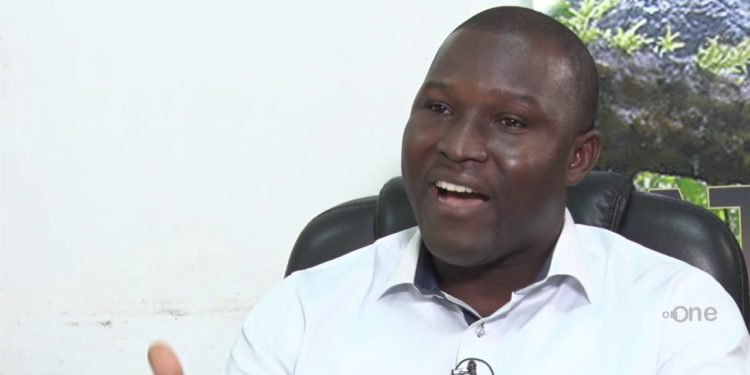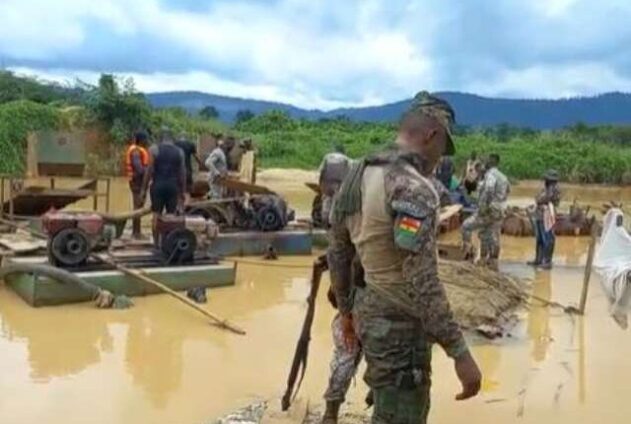The fight against galamsey remains one of Ghana’s most pressing environmental and social challenges, with illegal mining continuing to wreak havoc on water bodies, farmlands, and communities across the country.
Nearly nine months into President John Dramani Mahama’s administration, many had hoped to see significant progress in curbing the menace.
However, according to environmental activist Daryl Bosu, Deputy National Director of A Rocha Ghana, the situation on the ground tells a different story.
Bosu expressed deep concern about the state of the nation’s natural resources, citing the visible degradation of rivers and farmlands as evidence that the battle against galamsey is far from being won.
He observed that despite government announcements about various anti-galamsey initiatives, illegal mining activities continue with little interruption, creating a climate of impunity.
“Nothing has changed; the pressure and impunity are still continuous,” Bosu said, emphasizing that while some government interventions are making a difference in isolated cases, they are nowhere near sufficient to tackle the problem comprehensively.
Bosu pointed to several rivers, including the Pra, which remain heavily polluted, alongside numerous communities now exposed to intensified mining activities.
In certain areas, illegal miners appear emboldened, believing that their political affiliations shield them from accountability.

“Communities feel that their government is in power, so it is time for them to also feed,” Bosu lamented, accusing local authorities and security forces of turning a blind eye to these violations.
In his view, the lack of enforcement has allowed galamsey operators to act with impunity, further deepening the environmental crisis.
He highlighted that Ghana has strong laws designed to ensure sustainable mining practices, but enforcement remains a significant weakness.
Laws such as Act 995 call for the prosecution of individuals financing illegal mining, fabricating equipment for galamsey, and even foreigners involved in such operations before they are deported.
Laws Exist But Enforcement Fails
While the Environmental Protection Agency (EPA) Act and other legislation outline clear responsibilities, Daryl Bosu accused successive governments of failing to uphold these laws.
“The government is always whittling down the power of the law by setting it aside and doing whatever it wants,” he explained, adding that poor enforcement is the primary reason illegal mining continues unabated.
Bosu also criticized the current state of the National Anti-Illegal Mining Operations (NIMOS), which he described as under-resourced and struggling to carry out its mandate effectively.

Without adequate resources, he argued, NIMOS cannot function as the strong deterrent it was intended to be.
In his view, a more drastic approach is needed. Bosu urged the President to consider instituting a targeted state of emergency in areas hardest hit by galamsey.
Such measures, he said, would send a strong signal that the government is serious about ending illegal mining and would help restore order in critical regions.
“If we are not willing to institute a state of emergency now, then we should all put our hands on our heads and forget about a successful campaign to deal with this menace.”
Daryl Bosu
However, he was critical of the government’s rollout of what it calls the Responsible Cooperative Mining and Skills Development Programme (rCOMSDEP), describing it as essentially a continuation of the old community mining policy.
Without strict compliance and oversight, Bosu warned, this initiative risks fueling even more illegal activity rather than curbing it.
Leadership Void Fuels Galamsey Crisis
Daryl Bosu further argued that the root of the problem lies in a lack of leadership. According to him, both the current NDC administration and the previous NPP government have failed to demonstrate the political will required to prioritize the national interest over partisan concerns.
“Whether it is the NPP in power or the NDC in power, we are missing the critical leadership that will set aside political interests and prioritize the citizens’ interests.”
Daryl Bosu

The activist stressed that unless Ghana’s leaders unite to confront galamsey head-on, future generations will inherit a country stripped of its natural wealth and clean water sources.
He called on political actors to listen to the voices of ordinary citizens, many of whom are directly affected by pollution, loss of farmland, and the destruction of their livelihoods.
Bosu concluded by urging state institutions to return to the basics of their mandates: enforcing the laws, prosecuting offenders, and protecting the nation’s resources.
Without decisive action, he warned, the fight against galamsey will continue to be a cycle of failed promises and worsening environmental degradation.
“We need true leadership,” Bosu emphasized, “not politically motivated leadership as we are seeing now.”
READ ALSO: South Africa’s Online Retail Market Hits Record Growth



















